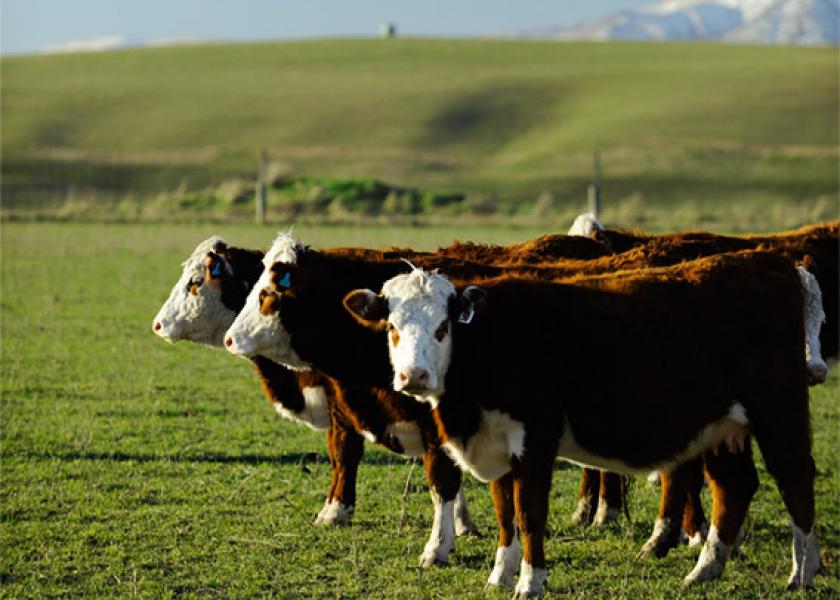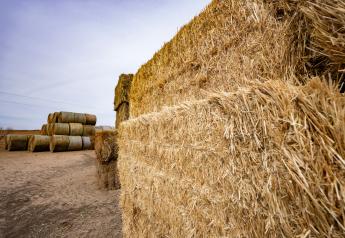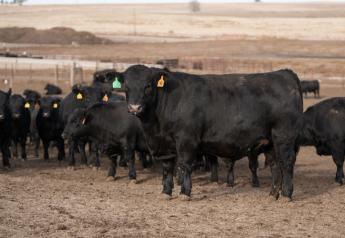NZ Importer Courts ‘Upscale’ American Consumers

A New Zealand beef company has launched an aggressive campaign to court American consumers. Silver Fern Farms, New Zealand’s largest livestock marketing and processing company, introduced its high-end New Zealand red meat products in New York, New Jersey and Connecticut in early 2020.
While many American beef producers oppose any beef imports into the U.S., Silver Fern Farms’ marketing strategies for the American market are worth recognizing. Specifically, here’s a foreign company that believes it can compete with American beef on its home turf by providing a product with attributes many upscale consumers say they want.
The product is grass-fed, though Silver Fern Farms also claims other attributes for all its meats, including grass-fed lamb and venison. Product price points start at $10.99 per pound.

John and Liz Chittock produce beef, lamb and venison for Silver Fern Farms. (SFF)
Owned jointly by a cooperative of 6,200 New Zealand livestock producers and Shanghai Maling Aquarius Ltd., a Chinese company primarily engaged in the production, processing and distribution of meat products, Silver Fern Farms reports annual revenue of $1.5 billion, while producing roughly 30% of New Zealand’s beef, venison and lamb.
“New York City is one of the great food capitals of the world and we are excited to provide New Yorkers with delicious eating experiences in the comfort of their own homes,” said Matt Luxton, Silver Fern Farms’ Director of US Sales. “Our products have been available in local butchers and restaurants in NYC for several years, and after listening to positive feedback from consumers we are confident that New York City has an appetite for our 100% grass-fed New Zealand products.”
New Zealand ranked fourth in total imports to the U.S. last year with roughly 401 million pounds. That was down 30% from 2018’s 572 million pounds, largely because Australia’s historic drought created more lucrative Asian and Chinese markets for New Zealand exporters.

The men of the Douglas-Clifford family who produce livestock for Silver Fern Farms. (SFF)
To attract consumers in one of America’s upscale markets, Silver Fern Farms says its farmer members “go above and beyond the already world-leading New Zealand industry standard meat that is 100% grass-fed, 100% pasture-raised, with no antibiotics ever, no added hormones ever, and no feedlots at any time in their life.”
Silver Fern has also committed to sustainability goals which include reducing greenhouse gas emissions by 30% within 10 years and achieving a 10% reduction in water and waste use.
"NZ's pasture-based farming system is a forerunner in environmental sustainability and was rated first equal for animal welfare standards by the Animal Protection Index, one of four countries in the world to receive the top grade," the company's product launch material says.
To American beef producers, such claims do not necessarily indicate a better or tastier product. But East Coast consumers may have different ideas about what their next steak should entail.
Shifting consumer demands in recent years have given rise to many beef producers and marketers who are carving out a niche in America’s diverse market. Branded programs that eliminate – or at least greatly reduce – unsatisfactory eating experiences have flourished.
Those successes to the branded beef revolution encouraged others to carve out additional slices of the American market with special product attributes such as “natural,” “organic,” or “grass-fed.”

Silver Fern Farms ground beef.
Now, many consumers say the attributes they say they want are even more refined.
A 2017 study by University of Illinois College of Agricultural, Consumer and Environmental Sciences asked consumers of four different products – beef, chicken, milk and eggs – to rank which production attributes they consider most important.
“The top three attributes overall were ‘no growth hormones,’ ‘non-GMO,’ and ‘humanely raised,’ though there were differences in importance based on product type,” the study’s authors said.
Not mentioned in that 2017 study – though an attribute many expect to rise in consumer expectations – is traceability. New Zealand has been a global leader in traceability with its “NZ Farm Assurance Programme” (NZFAP). New Zealanders tout NZAFP as “the foundation upon which the collective red meat industry can deliver an authentic and independently verified best-practice animal raising and production assurance standard to our International consumers.”
New Zealand's system is called one of the world's best and requires mandatory premise and animal identification, birth ID tags, and animal movement traceability.
Silver Fern Farms – and other like-minded global export companies – believe modern meat consumers are asking “where is this product from, how was it raised, and is it safe to eat.”
To verify the integrity of its products and supply chain, Silver Fern Farms has partnered with Oritain Global, a forensic science and data company used by a growing number of New Zealand and international primary producers, pharmaceuticals and global apparel companies.
According to Oritain, brands using its certification have undergone independent, scientific sampling and analysis. Each brand that uses the certification will have carried out the following process:
1. Oritain will have collected genuine samples of the product for analysis.
2. Following the analysis, Oritain will create a profile of the genuine product which represents its 'origin fingerprint'.
Oritain can then conduct testing against this 'origin fingerprint' to scientifically verify if the product is consistent with its claimed origin.
Additionally, Silver Fern Farms retail products will soon feature a QR code-enabled on-pack product traceability system that will give consumers the ability to trace where the meat comes from and the quality of its environment.







